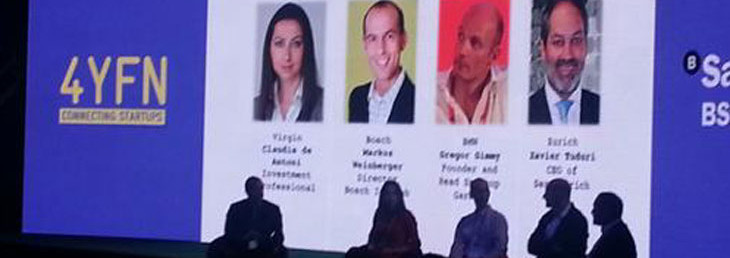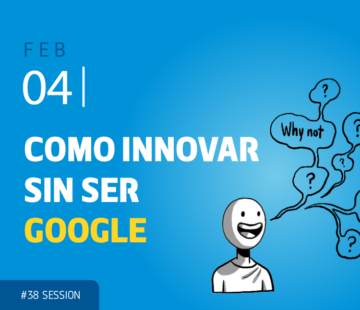Collaboration: Four years ago, Four Years From Now

It’s revealing to realize how quickly the concept of collaboration on innovation has spread in just a few years. Nowadays, it seems almost inevitable to talk about startups or innovation without mentioning ecosystems or the way big companies are incorporating different players to their innovation processes.
It definitively was not like that at all when we started Co-Society with our unique value proposal of becoming a platform in which innovation teams from different businesses could combine their assets in a systematic way to create new products and services. Having the opportunity to recently attend 4YFN (4 Years From Now), we were able to confirm to what extent this in the case now.
In its third year, 4YFN is an international business and networking platform for the global tech start-up community. A sister event to Barcelona Mobile World Congress that zooms in on innovation and startups, 4YFN brings together the best mobile start-ups and entrepreneurs with investors, accelerators, incubators and big corporations from the digital and non-digital world.
Having a quick look to its three-day programme of conference sessions, workshops and interactive discussions led by globally known experts in entrepreneurship and innovation was more than enough to perceive the extend to which the topic of collaboration and co-innovation was “on the air”. Specially, considering the focus of 4YFN, regarding the relationship between start-ups and consolidated companies. It was there where it was possible to read presentations, panel discussions or key notes with tittles as “Innovation with the IBM ecosystem”, “How corporations and startups can collaborate” or “Corporate Venturing: How David and Golitath become friends”.
Corporate Innovation cannot ignore Startups
The one titled “Corporate Innovation cannot ignore Startups” was presented by Marc Milian, Director of the Corporate Venturing practice in ESADECREAPOLIS, the business park of ESADE Business School, specialised in Corporate Innovation. Marc stated how different factors (disruption coming from everywhere, products lifecycle shortening, faster adoption of disruptive technologies, new business models, etc.) are making mandatory for companies to look for the kind of collaborative projects and partnerships bringing to both startups and corporations the best of their two worlds.
Corporations feel a strong pressure for radical innovation that often cannot be fulfilled from their own internal innovation units or R&D departments. For this reason, according to Marc, we are entering in a new wave of corporate venture capital that is not as interested in a short or medium term ROI as previous waves but focusing in innovation and presence in emerging markets; a new paradigm in which equity loses importance in favor of new collaboration models with startups focusing in revenue generation through the co-development of products, services or markets.
This obviously, Marc pointed out, makes the mission of corporate venture much more complex, having to save barriers of different organizational culture and speed that are no so important when the relationship is mainly about financial returns. Among the recommendations to save these barriers: no hidden agendas and a good screening process from both parties to find the perfect match between value propositions and what each part wants to get out of their engagement.
Different recipes of collaboration
Of special interest was also the panel titled “Disruption Inside: Corporate Innovation Recipes”. With the direct testimony of four top speakers in charge of innovation at Zurich Insurance, Bosch, BMW and Virgin, it provided an overview of how different corporate innovation models incorporate collaboration to generate disruptive innovation. Open innovation, acquisitions, accelerator/incubator, corporate startups, corporate VC, intrapreneurship,.. each of these companies are developing their particular mix of these or other strategies and mechanisms to shorten time to market for new ideas.
Zurich Insurance, for instance, is relying mainly on finding a better way to collaborate more deeply with all employees. Main reason? Limited budget and the will of better using the assets they already have. For the rest of the speakers this is not a favorite formula, as their collaboration efforts look precisely for the kind of perspectives, knowledge, experience or mindset that are not already inside their organizations.
“We can have 10.000 of the best engineers in the world, but that does not mean we have the specific knowledge about a new technology to charge batteries faster that a particular startup just developed”, declared the BMW representative as to explain the increasing interest of the German multinational in innovation on innovation. There was an agreement among the speakers from different companies on an increasing interest on collaboration with startups that goes beyond technology to embrace as well new business models and mindsets.
Of course, difficulties were also mentioned, as it was the need for corporations to create inside them a specific team or department to deal with collaboration instead of leaving it to the particular division or unit involved in each particular co-innovation process.
